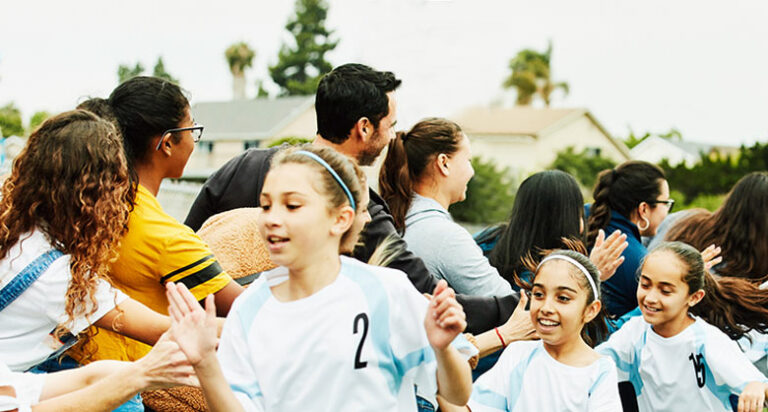Preventing
WAYS TO CREATE A POSITIVE SPORT ENVIRONMENT

Nine Principles
These principles will help you establish a positive sport environment.
Set behavioral expectations up front.
Tip: If you tell athletes that you do not tolerate back talk, also let them know how and when to express questions or concerns about something you have asked them to do.
Model appropriate and respectful behavior.
Tip: Do not refer to athletes without disabilities as “normal,” which implies that athletes with disabilities are not normal.
Call people by the name they want to be called.
Tip: Learn to pronounce names that you find difficult; do not shorten names solely to make them easier to pronounce. Call transgender and nonbinary athletes by the name and pronouns they use. Be sure that nicknames of athletes you coach are not offensive or hurtful.
Keep athletes’ age and developmental level in mind.
Tip: Teenage athletes may understand that a raised voice is not always the same as yelling in anger, but younger athletes may not. You may need to simplify language (though when communicating with athletes with cognitive disabilities, be sure to choose language that is not condescending).
Reinforce to athletes: While winning matters, growth and well-being are more important.
Tip: Help athletes turn mistakes and losses into learning opportunities. Remind them that no one wins every game, match, or competition and that your goal is to help them grow as athletes and as people.
Be consistent in communicating and holding people accountable.
Tip: If a star athlete violates team policies or engages in misconduct, treat them as you would any other athlete, even if it makes you less competitive.
Respond to misconduct immediately and consistently.
Tip: Address all forms of misconduct you learn about. If you address a bullying incident but ignore a hazing ritual, you send mixed messages about acceptable behavior.
Talk to athletes about positive bystander intervention.
Tip: Model bystander intervention by saying or doing something when you see abusive behaviors.
If someone tells an offensive or degrading joke, tell them the joke is not funny and you do not want that type of conversation around yourself or your team.
If someone tells an offensive or degrading joke, tell them the joke is not funny and you do not want that type of conversation around yourself or your team.
Learn more
Visit the below pages for resources and links to help you recognize, prevent, and respond to abuse and misconduct in your organization.
TOOLKIT RESOURCES
Use these Toolkit handouts and activities to help your team or colleagues discuss principles together and put them in action in your sport setting.
HELPFUL LINKS
A broad range of organizations and community resources are just a click away to help coaches, parents, and other athlete allies support individuals in need.

